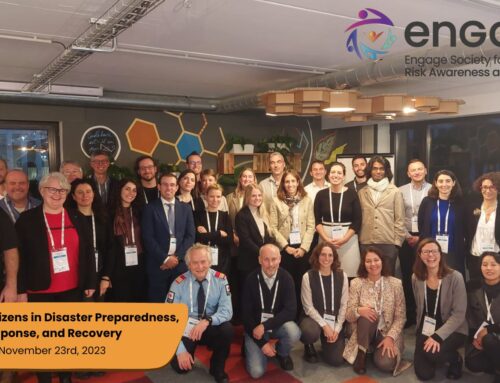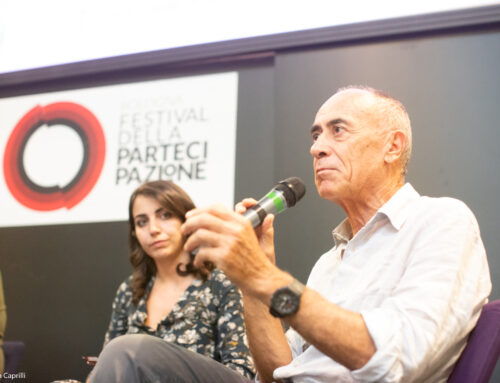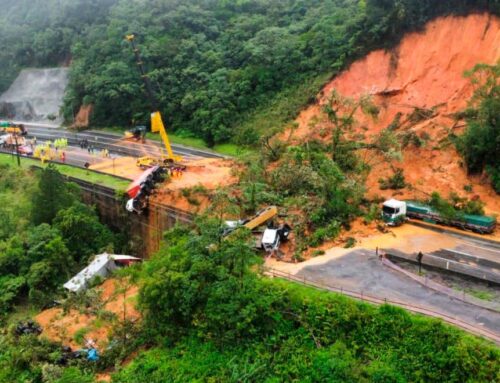On May 15th, the representatives of six projects within the Societal Resilience Cluster- LINKS, ENGAGE, BuildERS, PARATUS, and Riskpacc- met in Toulouse, France, to discuss common policy themes and ways of enhancing the visibility of our recommendations amongst different stakeholder groups.
What is the Societal Resilience Cluster?
The Societal Resilience Cluster is composed of eight projects (two projects that have already been completed and six that are currently running) which are funded under the European Union’s Horizon frameworks for Research and Innovation. The focus within this cluster is on building disaster resilient societies- which each project aims to do by adopting slightly different perspectives. For example, some of the projects focus on empowering actors at local levels, others on engaging civil society or including the most vulnerable, while others focus on strengthening the links between humans and technology.
Strength in numbers- identifying common policy themes
Despite the slight differences in our methodologies and perspectives, there are several common policy themes which are shared among the projects.
These include, first and foremost, aspects related to communication. Results of several of the projects have pointed to the need for a new communications ecosystem which is equitable, accessible to all, and accepts change as a constant state. This ecosystem must also be inclusive to a general audience, involve a multi-directional flow of information between citizens and authorities, and must take the diversity of needs related to communication in a society into account.
Engaging with citizens is another common theme, which involves gaining a better understanding of ways to bridge the gap between the informal work of spontaneous volunteers and the formal work of first responders and public authorities when responding to a nature-derived or man-made adversity. This does not necessarily mean that the work of individuals who are unaffiliated with an official organization on the scene of an emergency should be integrated into the operating structures of formal disaster management- but rather that an interface should be developed to allow for the integrity of informal contributions to be upheld while at the same time allowing formal disaster management to utilize the resources that they bring to the table.
Engaging with citizens also involves issues of trust and transparency, and the importance of intermediary actors- such as practitioners of social care organizations- who can translate risk and crisis information in a manner that is easily understood by their client groups. It is also important to bear in mind the role of technology in the process of engagement- namely how technology can enable or even create barriers.
The final common theme among the cluster involves policy to practice to action or, in other words, holistic approaches to systemic risk. This theme involves not only an analysis and assessment of e.g vulnerability, but also developing ways to communicate and translate data related to risk and ensuring that this information is accessible and able to be implemented in practice, which also involves the technical side of awareness in terms of localizing this sort of information. Another important aspect within this theme is preparedness and adaptation education, which is something that the LINKS project has been active in developing on their online platform Feel Safe, which promotes the use of social media, technologies, and digital education as a means to enhance the resilience of communities to disasters.
Next steps for the cluster
In addition to further solidifying these themes, the cluster will work towards several outputs, including a joint chapter in a white paper on the topic of societal resilience authored by the ENGAGE project, and potentially other joint publications such as articles or white papers. Concurrently, the cluster will aim to identify relevant stakeholders to engage with and will seek to align our work with the current landscape in terms of their current policy priorities. Joint events and policy roundtables are also being worked towards.
If you are interested in following the progress of the cluster in terms of policy work or their results in general, you can visit the websites listed below:
ENGAGE- https://www.project-engage.eu/
LINKS- https://links-project.eu
BuildERS- https://buildersproject.eu/
Riskpacc- https://www.riskpacc.eu/
CORE- https://www.euproject-core.eu/
PARATUS- https://www.paratus-project.eu/





